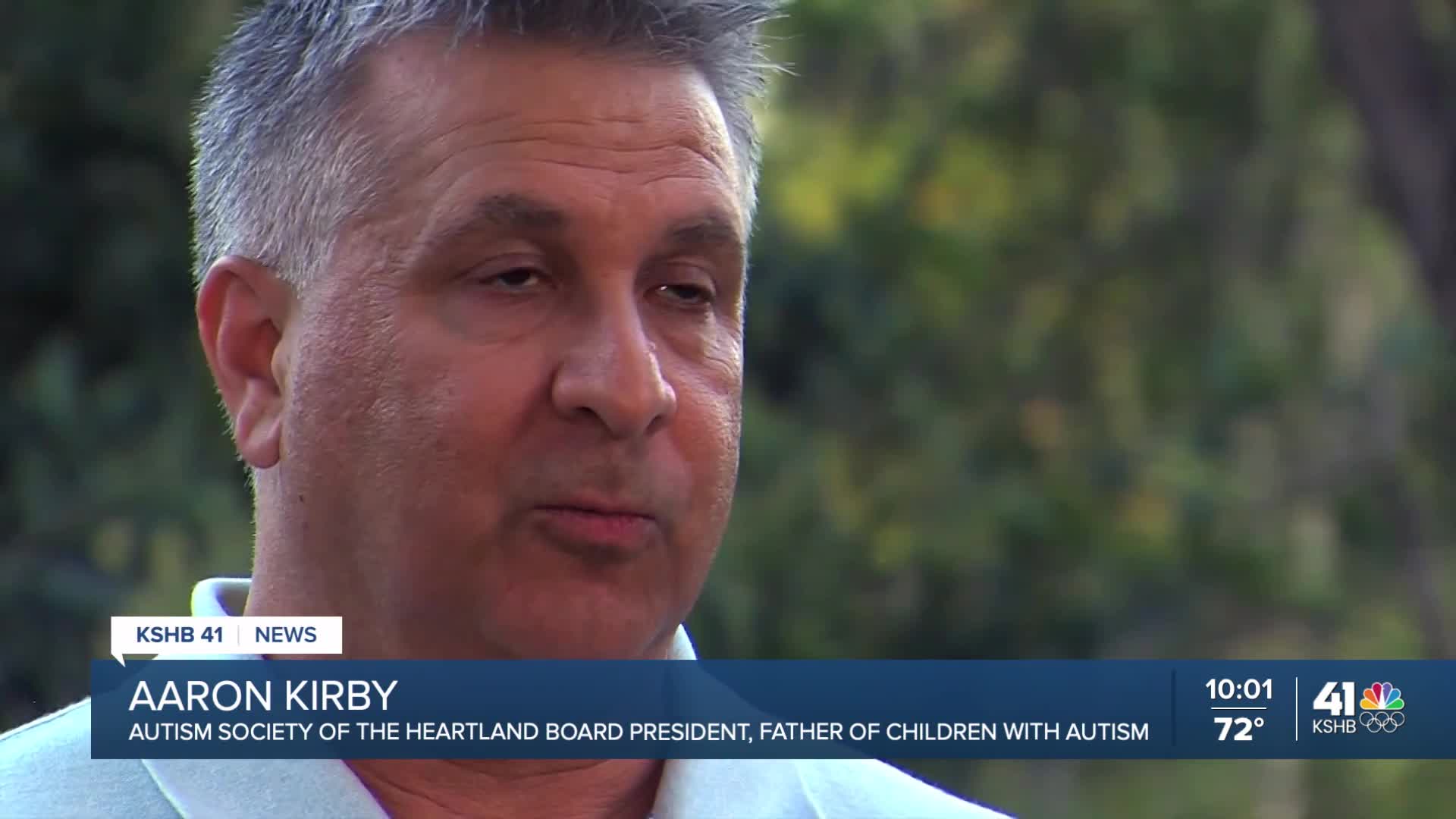KSHB 41 reporter Isabella Ledonne covers issues surrounding government accountability, solutions and consumer advocacy. Share your story with Isabella.
The Trump administration made a major announcement related to autism on Monday when it claimed the use of painkiller acetaminophen during pregnancy increases the risk of the developmental disorder.

"The FDA is responding to clinical and laboratory studies suggest a potential association between acetaminophen used during pregnancy and adverse neurodevelopmental outcomes, including later diagnosis for ADHD and autism," Robert F. Kennedy Jr., U.S. Secretary of Health and Human Services, said during Monday's announcement.
The news comes as some studies have suggested there's no link and that acetaminophen is the safest option for pain relief in pregnancy.
We know families have questions and that's why government accountability reporter Isabella Ledonne is asking local experts their thoughts and going in depth on the studies.
Overwhelmingly, doctors and researchers have claimed there is no link between Tylenol and other acetaminophen products and rates of autism. But for young families, having government officials say acetaminophen is linked to autism can be overwhelming.
"As a father, it weighs pretty heavily, cause you always wonder with all this extra noise, was there something my wife and I did prenatal that may have caused this diagnosis?" Aaron Kirby said.

Kirby is the board president of Autism Society of the Heartland, a local organization that connects families with local resources for diagnosis and treatment. He's also a father to two kids with autism.
"They're just like every other kid," Kirby said. "They want to play, they want to be loved and they want to live."
President Donald Trump advised against pregnant women taking acetaminophen, the only safely accepted drug they can take for fevers and pain relief.

"Ideally you don't take it at all," President Trump said. "But if you have to, if you can't, tough it out, if there's a problem, you're going to end up doing it."
Kirby shared a different view.
"We feel that there is a risk here that could deter pregnant mothers from getting the medication they need to relive themselves of pain and fever," Kirby said. "That could be potentially dangerous."
Monday's announcement comes after a study from Mount Sinai and Harvard researchers in August 2025 that claims there is an increased rate of autism in children whose mothers used acetaminophen while pregnant. The study doesn't specifically reference any new testing, but rather compiles previous publication findings.

"It's not a new study, but rather is a new look at old studies," Dr. Brian Lee, professor of epidemiology and bio statistics at Drexel University said. "They emphasize the studies they believe to be high quality and sort of disregard the studies they believe to be lower quality. This is where scientists will disagree."
The study suggests women limit the use of the drug while pregnant while more research confirms the cause of autism.
"We found [in this study] a slight statistical increase in risk of autism and ADHD, but association is not causation," Dr. Lee said. "This is kind of an apples to oranges comparison because the [acetaminophen] users are so different in many ways."
President Trump stated pregnant women should not take Tylenol or other acetaminophen products at all, but offered no other alternatives for pain or fever relief.
But an OBGYN in maternal fetal medicine with the University of Kansas Health System spoke to the dangers of taking no action while pregnant and sick.

"A fever is, without a doubt, unsafe to have in pregnancy," Dr. Marc Parrish said. "Take everything that you see in the media with a great degree of caution and have a conversation with whomever your pregnancy provider is."
Experts like Dr. Parrish have referenced a 2024 study from JAMA, which studied two million children and their ties to acetaminophen use. That study found no link between Tylenol and neurodivergent disorders.
"We still believe that, based on the best available evidence, [Tylenol and acetaminophen] is the safest anti-pain medication you can take during pregnancy," Dr. Parrish said.
The Trump administration suggested families consider leucovorin, which the FDA will now relabel for autism treatment.
"No therapeutic recommendations, in my opinion, should be made based on this really preliminary evidence," Dr. Lee said. "In short, more research is needed."
Experts agree consulting with your doctor on taking acetaminophen is the best course of action.
"Based on the multitude of studies that have been performed, there's without a doubt no causal link between Tylenol and autism," Dr. Parrish said.
For parents like Kirby, autism acceptance and treatment is more important than the cause.
"In general, this type of news and just creating conversation around autism can only have a positive impact at the end of the day," Kirby said. "As parents, we love [our kids] regardless, no matter what, and we're just happy to have happy, healthy young boys."
National organization Autism Speaks provided KSHB 41 News with a statement following the Trump administration's announcement on Monday.
"At Autism Speaks, we have been encouraged by the recent, increased focus on autism and have consistently advocated for substantive spending on the research and services needed to improve the lives of autistic people," a spokesperson said. "We urge the Administration's resources be dedicated toward advancing new and innovative areas of research, so the community benefits from fresh insights, rather than revisiting questions that have been well studied, including vaccines and autism."
Tylenol has published an FAQ on their website regarding autism and acetaminophen use.
—



